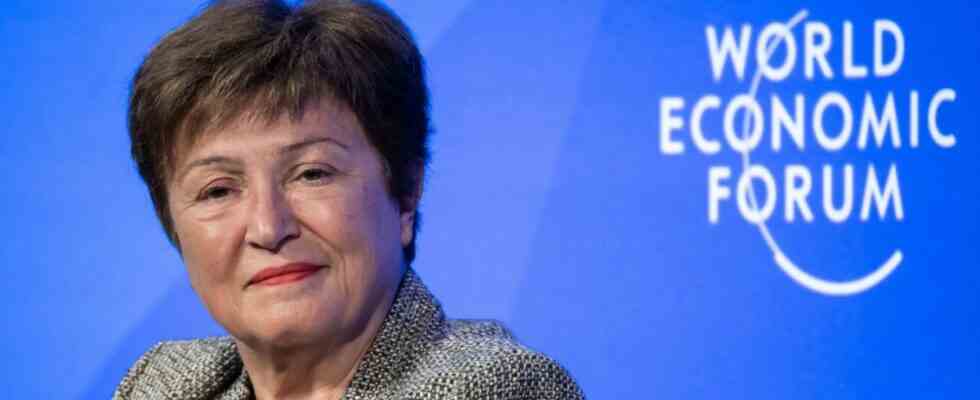Cautious optimism yes, general all-clear no: This is the conclusion reached by the International Monetary Fund (IMF) in its new quarterly global economic outlook, which the IMF presented in Singapore. In contrast to the previous quarters, the global economic outlook did not deteriorate any further this time, explained IMF chief economist Pierre-Olivier Gourinchas in a written statement distributed at the same time. “That’s good news, but not enough. The road to a full recovery, with sustained growth, stable prices and progress for all, is just beginning.”
With the new report, the fund and its head, Kristalina Georgieva, are moving away from their rather gloomy prophecies that characterized last fall. The Washington experts are sticking to their forecast that the world’s ten largest economies, with the exception of Japan, will all have to brace themselves for a significant slump in growth this year. In their opinion, however, there can only be talk of a significant recession in Great Britain: Gross domestic product (GDP) there is likely to shrink by 0.6 percent in 2023. In all other countries, the labor markets, consumer spending by private households and corporate investments have proven to be surprisingly robust despite the Ukraine war, inflation and the pandemic, according to the economists. As a consequence, they raised their forecast for global economic growth this year from 2.7 to 2.9 percent. For 2024 they expect an increase of 3.1 percent.
However, the main growth drivers will not be the Western industrialized countries, but above all the emerging countries in Asia. This applies in particular to the Republic of India, which has replaced the corona-plagued neighboring country China as the economic engine. For 2023, the IMF predicts a GDP increase of 6.1 percent for the government in Delhi, for 2024 an increase of 6.8 percent. The countries of the West are a long way from such values: Growth is likely to be strongest in the USA and Canada. The fund forecasts growth rates of between 1.2 and 1.5 percent for the countries in both years.
Among the large EU countries, Germany is at the bottom of the growth table
In the euro zone, on the other hand, the Russian war of aggression against Ukraine continues to have a particularly strong impact. Among the large member states, only Spain can expect a GDP increase of just over one percent this year, in the other states there is a zero in front of the decimal point. Bringing up the rear is Germany, for which the IMF now expects growth rates of 0.1 percent this year and 1.4 percent next year. After all, this would narrowly avoid the decline in economic output previously predicted for 2023.
However, that doesn’t change the fact that Germany – at least statistically speaking – is currently stuck in a “mild winter recession,” as the Munich-based Ifo Institute put it on Monday, referring to the latest figures from the Federal Statistical Office. Accordingly, GDP fell by 0.2 percent in the final quarter of 2022. If the slight shrinkage continues in the first three months of the current year, as many experts assume, one would have to speak of a recession according to the common definition – even if the effects on the labor market, consumption or company profits would hardly be noticeable for many people .
Ifo economics chief Timo Wollmershäuser attributed the fact that the decline between October and December was not even greater to the surprisingly strong increase in the number of vehicle registrations at the end of the year. Apparently, many citizens would have quickly ordered a hybrid or electric car in view of the falling state subsidy premiums – with consequences for the start of 2023: “For the current quarter, there should be a strong rebound effect in car purchases, since the purchases brought forward are now no longer available,” says Wollmershäuser . He therefore only expects the economy to recover later in the year, because then “inflation rates will fall noticeably and incomes will rise sharply.”
The Monetary Fund also assumes that the worst excesses in price developments have been overcome. Chief economist Gourinchas obviously believes that the fact that the financial markets have long been betting on an end to the inflation-related key interest rate increases and even an early easing of monetary policy is another miscalculation on the part of stock and bond traders: the latest price data are encouraging, but the fight against inflation is still ongoing “Not won by a long shot,” said the economist. “Therefore, the central banks must continue their efforts.”

